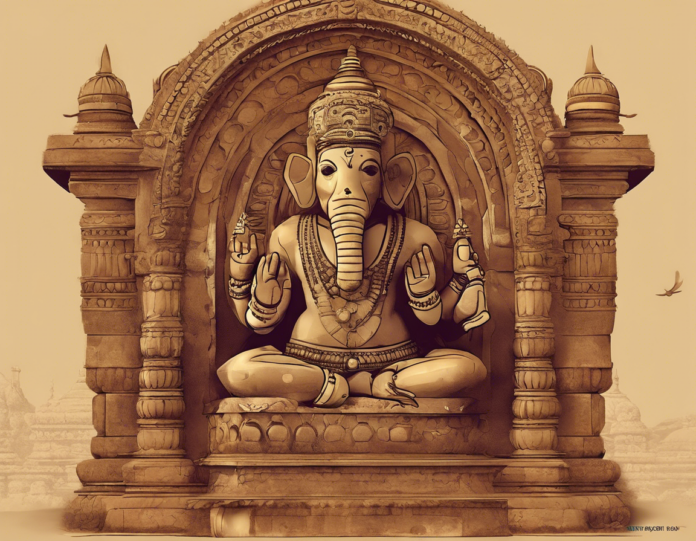When it comes to understanding the rich and diverse history of Ancient India, the name that immediately comes to mind is R.S. Sharma, a renowned historian whose works have significantly contributed to our knowledge of this period. R.S. Sharma, or Ram Sharan Sharma, was born on January 26, 1919, in Barauni, Bihar, and went on to become a leading authority on Ancient Indian history.
R.S. Sharma’s research and writings have shed light on various aspects of Ancient India, including its social, economic, and political structures. His work has not only deepened our understanding of this fascinating era but has also shaped the way we perceive Indian history as a whole.
In this article, we will delve into the world of Ancient India through the lens of R.S. Sharma’s scholarship, exploring some of the key themes and ideas that he has explored in his works.
Early Life and Career
Born into a humble family in Bihar, R.S. Sharma displayed a keen interest in history from a young age. He pursued his higher education at the Patna University, where he completed his MA in History in 1942. Sharma later went on to obtain his PhD from the University of Patna in 1954, with a thesis on “Life in the Gupta Age.”
After completing his education, Sharma embarked on a distinguished academic career that saw him teaching at various universities across India. He served as a professor at Patna University, Delhi University, and the University of Toronto, Canada, where he also held the position of a visiting professor.
Contributions to Indian History
R.S. Sharma’s contributions to Indian history are vast and varied, with his research encompassing a wide range of topics and periods. Some of the key areas that Sharma focused on include:
-
Ancient Indian Economy: One of Sharma’s significant contributions was in the study of the economic history of Ancient India. He explored various aspects of economic life in ancient societies, including trade, agriculture, and urbanization.
-
Classical Age: Sharma’s research on the Classical Age of India, particularly the Gupta and post-Gupta periods, has been instrumental in shaping our understanding of this time. He delved into the socio-political structures of the time and the cultural developments that took place.
-
Feudalism in India: Sharma’s work on feudalism in India challenged existing notions and interpretations of this system in the Indian context. His research highlighted the complexities of feudal relationships and their impact on society.
-
Social History: Sharma also made significant contributions to the study of social history in Ancient India. His research focused on various social groups, including the peasantry, artisans, and merchants, shedding light on their roles and contributions to society.
-
Historiography: Apart from his research on Ancient India, Sharma also delved into the field of historiography, examining the methods and approaches used in writing history. His work highlighted the importance of critical thinking and rigorous analysis in historical research.
Key Works
Throughout his career, R.S. Sharma authored several influential works that continue to be essential reading for anyone interested in Ancient Indian history. Some of his key works include:
-
“Indian Feudalism”: In this seminal work, Sharma explores the nature of feudalism in India and its impact on society and economy. He challenges traditional views on Indian feudalism, offering a fresh perspective based on rigorous research.
-
“Material Culture and Social Formations in Ancient India”: This book delves into the material culture of Ancient India, examining the artifacts and structures that provide insights into the social and economic life of the time. Sharma’s analysis helps in understanding the complexities of ancient Indian society.
-
“Aspects of Political Ideas and Institutions in Ancient India”: In this work, Sharma examines the political landscape of Ancient India, exploring the ideas and institutions that shaped governance and power relations in different periods. His meticulous research provides valuable insights into the political structures of the time.
Legacy and Influence
R.S. Sharma’s legacy in the field of Indian history is profound, with his works continuing to inspire new generations of historians and researchers. His emphasis on empirical evidence, critical analysis, and nuanced interpretations has set a high standard for historical scholarship in India.
Sharma’s influence is also evident in the way Ancient Indian history is taught and studied in academic institutions, with many scholars building upon his research and ideas. His emphasis on interdisciplinary approaches and holistic understanding of history has shaped the methodologies adopted in the study of Ancient India.
Frequently Asked Questions (FAQs)
1. What was R.S. Sharma’s approach to studying Ancient Indian history?
Answer: R.S. Sharma’s approach to studying Ancient Indian history was characterized by empirical research, critical analysis, and a focus on socio-economic structures.
2. What are some of the key themes that Sharma explored in his works?
Answer: Sharma explored themes such as ancient Indian economy, feudalism, social history, and political institutions in his works.
3. How has R.S. Sharma’s research influenced the study of Ancient Indian history?
Answer: R.S. Sharma’s research has influenced the study of Ancient Indian history by setting high standards for empirical research, critical analysis, and nuanced interpretations.
4. What are some of R.S. Sharma’s key works in the field of Indian history?
Answer: Some of R.S. Sharma’s key works include “Indian Feudalism,” “Material Culture and Social Formations in Ancient India,” and “Aspects of Political Ideas and Institutions in Ancient India.”
5. What is R.S. Sharma’s legacy in the field of Indian history?
Answer: R.S. Sharma’s legacy in the field of Indian history is characterized by his profound influence on historical scholarship, his emphasis on critical thinking, and his nuanced interpretations of Ancient Indian history.
In conclusion, R.S. Sharma remains a towering figure in the field of Indian history, whose research and writings continue to inspire and enlighten. His meticulous scholarship, critical analysis, and nuanced interpretations have deepened our understanding of Ancient India, making him a seminal figure in the study of Indian history.

